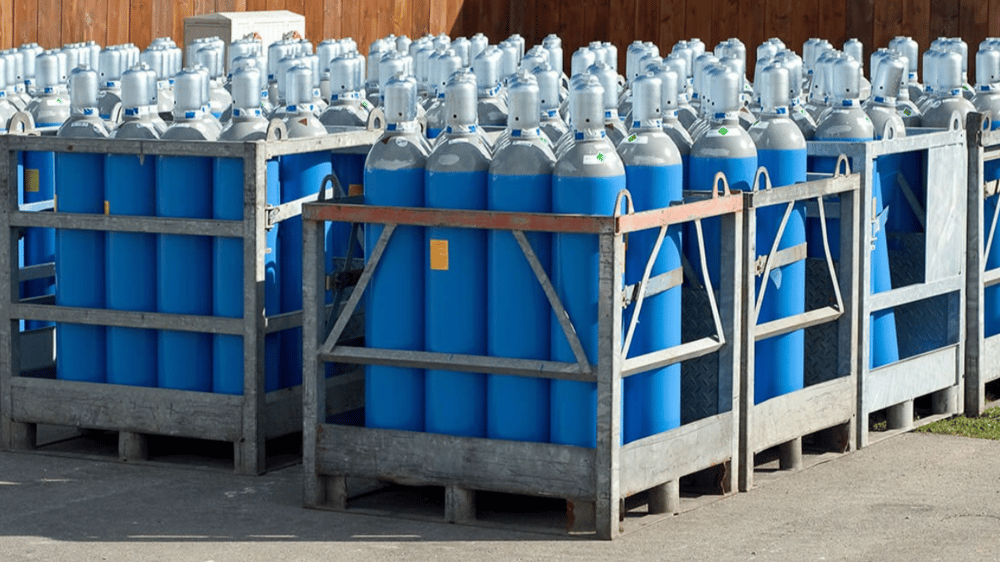Why Decarbonizing Gas and Chemicals is the Key to a Greener Planet: The Gas Cylinder Case
Dec 4, 2024 9:20:00 PM TMA - The Hazardous Goods Companion 3 min read

Gas and chemical products are found almost every where in our lives.
They provide light and heat in our dwellings, energy for our vehicles and the main component in many processes of production.
From fabrication of plastics, fertilizers, and generation of electricity, the industries are fundamental in sustaining energy and material requirements.
At the same, these industries are major culprits for the greenhouse gas emissions that affect our planet. Reducing emissions in these sectors is the key to combating climate change and establishing a sustainable future.
To mitigate the effects of climate change, it has become crucial to reform the gas and chemical industry.
The industry notably faces profound challenges in asset management, transportation and environment impact. Nonetheless, AIoT can serve a new revolution as a solution to these problem, and their decarbonization process is already on its way.
AIoT: A Catalyst for a More Sustainable Gas Cylinder Supply Chain
Artificial Intelligence of Things (AIoT) is a powerful tool for managing supply chains, especially those involving gas cylinders.
By leveraging intelligent sensors, data analytics, and machine learning, AIoT can revolutionize the current practices of gas cylinder management, transportation, and distribution.
A List of Benefits from AIoT Implementation:
- Enhanced Asset Tracking and Recovery: Real-time monitoring of gas cylinder location, movement, and condition, enabled by IoT sensors, facilitates accurate asset inventory tracking, loss prevention, and efficient recovery. This results in significant cost savings and environmental benefits. For instance, TMA, our hazardous goods companion, identified a 20% reduction in cylinder losses due to improved recovery rates with AIoT.
- Optimized Transportation Routes: AIoT algorithms can analyze historical data, traffic patterns, and real-time conditions to optimize transportation routes, reducing travel distances and fuel consumption. This enhances operational efficiency and lowers carbon emissions. By combining AIoT with customer order and routing planning, companies can achieve an estimated 10% fuel savings and 15% reduction in carbon footprint.
- Predictive Maintenance: AIoT-driven predictive maintenance systems can anticipate equipment failures, minimizing downtime and preventing accidents. This not only improves business efficiency but also protects the environment. Studies suggest that AIoT-based predictive maintenance can reduce unplanned downtime by 25% and maintenance expenses by 10%.
- Reduced Wastage: AIoT can identify and address supply chain inefficiencies, such as overstocking or understocking. By optimizing inventory management, AIoT helps reduce waste during production and transportation, promoting environmental sustainability. Implementing AIoT in inventory management can lead to a 15% reduction in product wastage and an 8% decrease in operational costs.
Decarbonization Through AIoT
AIoT empowers gas cylinder companies to significantly decarbonize their operations.
By optimizing asset management, transportation routes, and reducing wastage, AIoT solutions contribute to reducing carbon emissions, enhancing productivity, and promoting a more circular economy.
Improved inventory control and minimized losses can extend the lifespan of gas cylinders, thereby reducing the need for new materials.
TMA's the Hazardous Good Companion Commitment to Decarbonization
TMA wholeheartedly supports the gas and chemical industry's goal of achieving net-zero carbon emissions by 2030.
Our IoT applications enable organizations to track and recover assets, streamline distribution channels, and minimize product waste, contributing to environmental conservation.
By leveraging real-time data and analytics, we empower our clients to operate more sustainably and efficiently.
Conclusion
AIoT offers a valuable solution for reducing the carbon footprint of the gas cylinder industry.
Intelligent systems and sensors, combined with data analytics and machine learning, can enhance asset management, transportation, and supply chain processes, leading to substantial environmental and economic benefits.
As the world focuses on sustainability, AIoT is essential for driving a greener and more efficient future for gas cylinder companies.
